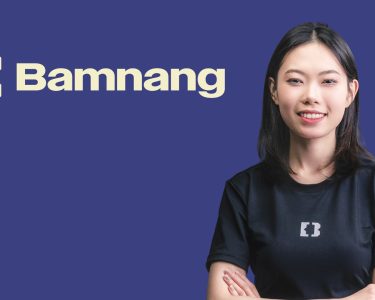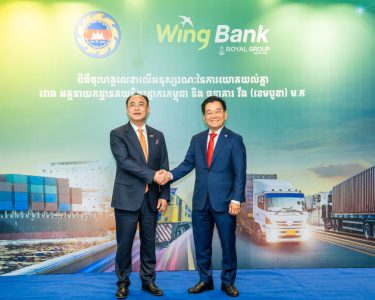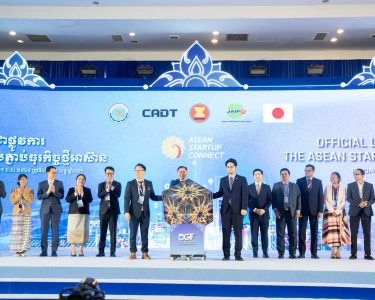Cambodia Investment Review
In the 90th episode of the Rising Giants podcast, co-hosts Max Thornton and Dom Kalousek delve into the venture capital scene & startup ecosystem of Cambodia – focusing from a regional and global point of view. The episode features Singaporean-born Jeremy Au, VC at Monk’s Hill Ventures, a venture capital firm investing in early-stage tech companies primarily in Southeast Asia and Founder of BRAVE Southeast Asia podcast.
Jeremy’s comprehensive experience in the start-up ecosystem, and his recent visit to the RG & CIR Start-Up & Innovation Festival 2023 in Cambodia, provided a unique perspective on the country’s entrepreneurial potential and challenges.
Jeremy Au is an esteemed figure in the world of startups and venture capital. His distinguished journey spans over a decade, traversing the corridors of America and Asia as a founder, CEO, and coach for early-stage tech startups. His background included CozyKin, a VC-backed edtech startup he co-founded and led as CEO until it was acquired by Higher Ground Education.
A limited perspective of the Cambodian startup scene
Before coming to Cambodia for the festival, Jeremy had a limited perspective of the local startup scene. He admitted, “Cambodia was not really on the radar at all from a startup venture capital side of things until I got the call-up from the festival.”
The invitation to the festival led him to conduct some more research about the Cambodian startup sector, which then brought him face-to-face with the country’s high-potential entrepreneurs. This revelation was deeply impactful, with Jeremy particularly moved by their “high caliber” and the palpable “hunger in their voice to help drive the sector.”
Jeremy’s exploration of the Cambodian entrepreneurial landscape unveiled a two-pronged reality. First, Cambodia had a stark scarcity of venture capital dollars, both in terms of total and per capita basis. Second, Cambodia lacked indigenous venture capital firms, unlike Vietnam or Indonesia where local VC firms are more common.

But Jeremy’s seasoned perspective spotted a silver lining, noting that this very scenario was reminiscent of the early days of venture capital in Vietnam and Indonesia, indicating that Cambodia may just be on the brink of a similar growth trajectory if guided by the right policy settings.
Max and Dom, the podcast hosts, took the discussion further by asking Jeremy to compare Cambodia with other regional ecosystems. Here, Jeremy introduced an interesting analytical lens – the GDP per capita perspective. “Because Singapore has a high GDP per capita,” Jeremy explained, “they are more in line with cultural reference to the US and Europe as well as access to technology which drives an ecosystem to develop.”
He went on to rank countries in the region based on their GDP per capita, placing Cambodia in the group of least developed nations of Myanmar, Loas and Timor-Leste below emerging Indonesia, Vietnam and Indonesia. He emphasized that GDP per capita was a more crucial determinant of a country’s startup ecosystem development than geographical location.
The requirements to nourish a startup ecosystem
Attending the festival allowed Jeremy to observe the diversity of attendees. He identified four distinct groups: expatriates, Southeast Asians from neighboring countries, ‘sea turtles’ (Cambodian-born but foreign-educated individuals returning to Cambodia), and local Cambodians enthusiastic to participate in the startup ecosystem. Jeremy stressed the vital role of this last group, highlighting them as the primary force that will drive the Cambodian startup ecosystem into the future.
The conversation took a turn when the hosts asked Jeremy about the requirements to nourish a startup ecosystem. He outlined a pyramid of needs, placing a stable political and societal system at the base, followed by education, health and infrastructure in the middle, and finally the ecosystem enablers/accelerators at the apex. He pointed out that people often disproportionately focus on the ecosystem enablers/accelerators, whereas investments into education, health and infrastructure should be the primary focus.
When discussing how to attract VC firms to an ecosystem, Jeremy reiterated the importance of comprehensive education – especially for the critical K-12 bracket. He cited Vietnam’s strategy as an example, where government investment in education and infrastructure laid a strong foundation for a thriving ecosystem we are seeing today.

The hosts also then probed the value of podcasts in cultivating a startup ecosystem. As a seasoned podcaster himself, Jeremy talked about his intention to create content that focuses on teaching people how to think rather than spoon-feeding them answers – which can easily be ‘Googled’. He highlighted the role of authenticity and consistency in building a podcast audience.
Jeremy’s insightful interview concluded with a series of rapid-fire questions. Sharing personal anecdotes and advice, he advocated investing in things one spends a lot of time with and reflected on the importance of family commitments. His most powerful guidance came in the form of a question he often asks himself when facing challenges: ‘If not you, who? And if not now, when?’
The main takeaway from this podcast is while there is great potential for Cambodia’s emerging startup ecosystem, it cannot forget the main success drivers of education, health and infrastructure are the essential elements needed to build it. The Rising Giants podcast continues to shine a light on the lesser-known yet high-potential corners of the global entrepreneurial landscape.





